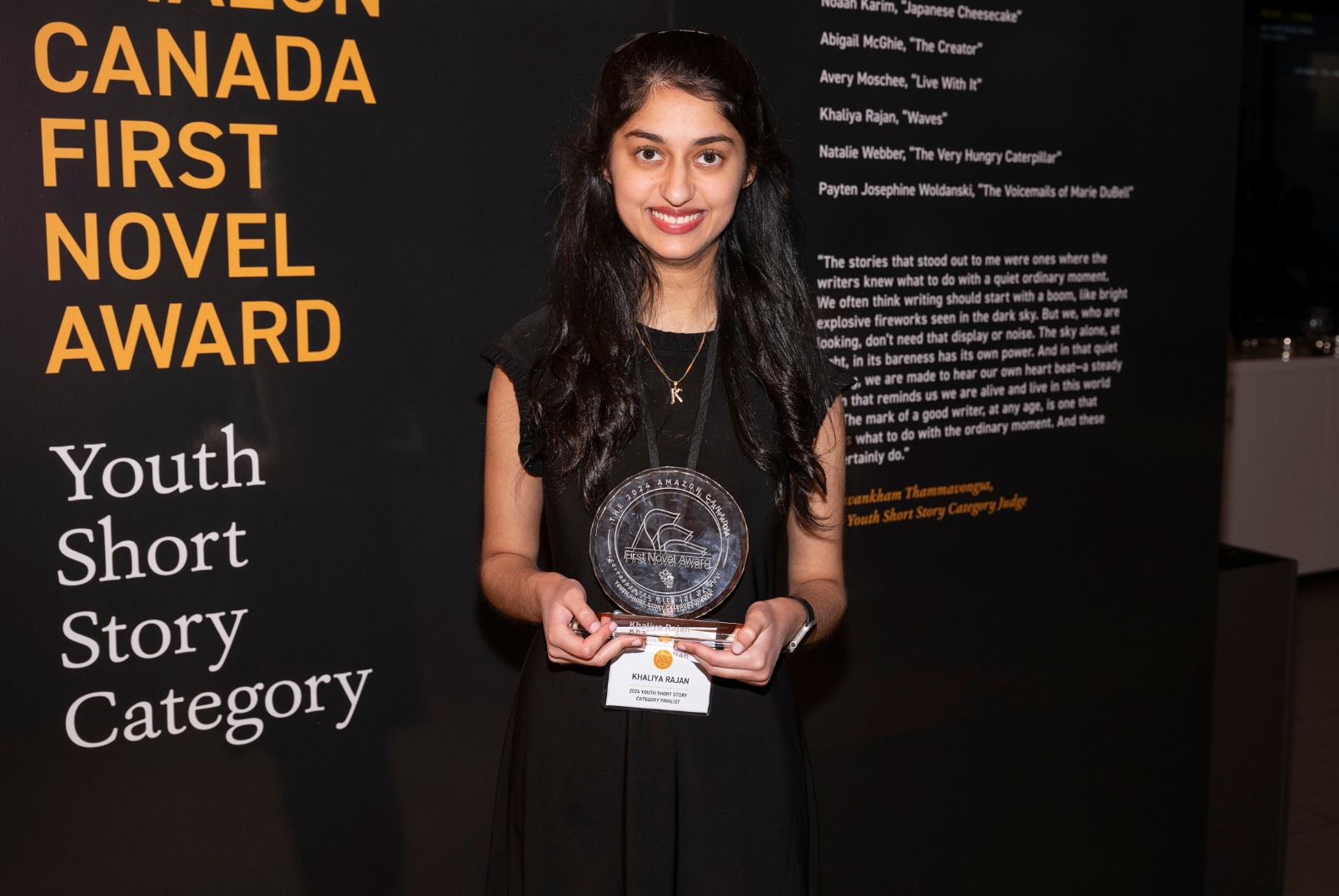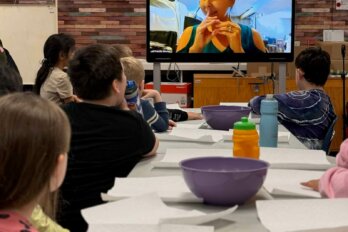The prize for her winning short story was $5,000 and her story will be published in the January/February 2025 print edition of The Walrus magazine.
My eyes peer over my sunglasses all around the beach—at the people, sand, and water. I sit far up, on a white and green striped towel. “Get up and come for a walk. You need exercise,” says my Dad.
Grudgingly, I put down my book and stand up. I did not even want to come outside in the first place. Since I was young, I preferred staying inside, my face in a book, no matter the weather. I keep my sandals on, one of the few to do so. The sand still arrives on and under my feet. I hate the grainy feel of sand touching my smooth skin. The waves grow bigger, coming further onto the beach. Come in, I can hear them say, mocking me. I can’t swim, never could. As the waves crash onto the beach and wash over my feet, the sand in my sandals sticks even more. It feels like mud. Each wave over me makes my feet sink into the sand. “Come closer,” Dad tells me. I groan but do so.
I inhale the fresh, ocean-tinted air which does not bring me joy but further annoyance. When larger waves come, I run back up to avoid being hit. My parents laugh as I move to circumvent the water. Anger boils up inside me and breathing deeply doesn’t help. While blinded by fury, a wave arrives, coming close to my knee. 1, 2. I see a knee dislocation, I can imagine the pain. It had been only four months since the surgery. Panting, I move to higher beach.
As we continue our stroll, we move closer to the ocean. An unseen, humongous wave comes, engulfing and pulling me in. 3, 4. My knee wobbles, I stumble toward the ocean. Fear devours me. I run back up, far from the water. 5, 6. My leg is stiff, bent to protect itself from another dislocation.
“Don’t be like that. It is okay,” my parents urge me, misunderstanding how I am feeling. I want to say I can do it, but I cannot lie. My feet carry me forward at the speed of a snail. Finally, I let the water touch my feet but nothing more. 7, 8. I shudder, reliving painful memories. But I am okay. I smile and step further toward the ocean while remaining cautious. I begin to relax and take in the sounds of talking and laughter around me. The salty, briny smell wafts toward me and a light breeze cools me down. My shoulders relax and I stare at the sky.
Suddenly, another wave hits, catching me off guard. I stumble back, barely standing. I gasp and move up the beach where I will not be touched by the menacing waves. My whole body trembles and my eyes stare off into the distance, not seeing anything while seeing so much at the same time.
Another massive wave follows. 9, 10. I can feel the sensation of my knee dislocating, but it remains in place. A new person takes over me. I go close and let the water come up to my knees, still tense.
11, 12. I am okay. A smile is on my face as I retrieve my book and return to the hotel.
– Souvankham Thammavongsa, 2024 Youth Short Story Category Judge




